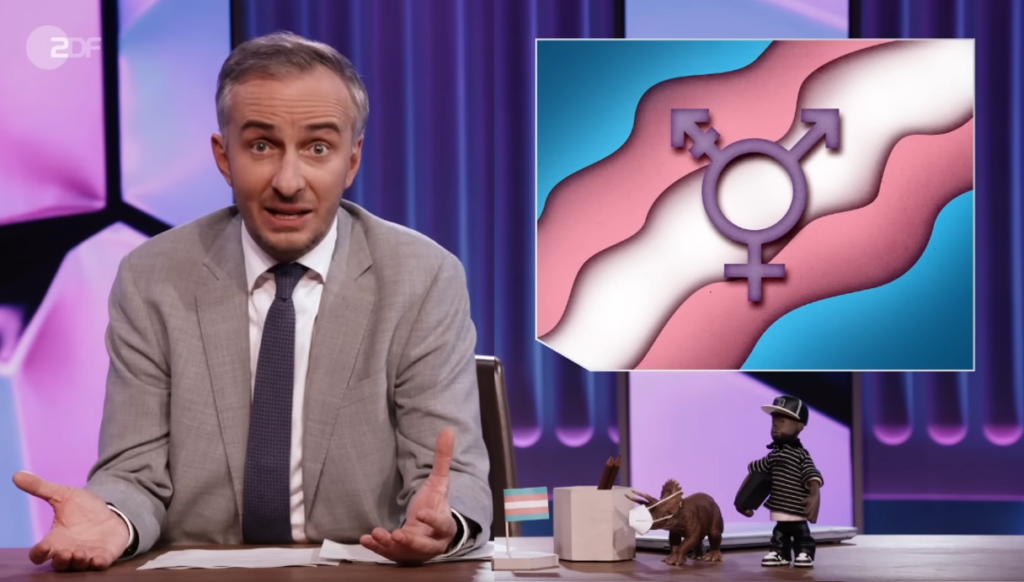
Equal rights for all?
In ZDF Magazin Royale, Jan Böhmermann settled accounts with trans* hostility and gave trans* people a voice. This is primarily about the right of free development for all, which is engrained in the German Basic Law (cf. Art. 2 GG). For the free development of identity, however, trans* persons still have to fight hard, because according to the currently valid “Transsexuellengesetz” they still have to undergo strongly degrading and discriminating procedures to adapt their civil status to their gender identity. As soon as next year, the 40 year old “Transsexuellengesetz” will be replaced by the new self-determination law. Some politicians and TERFS (trans excluding radical feminsits) want to prevent this by all means and thus deny trans* persons their own gender identity and restrict their free development.
” being trans is not fashion – but trans-hostility is”
He particularly takes aim at Alice Schwarzer, editor-in-chief of the magazine Emma, who calls trans* existence a “fashion”-statement. Böhmermann also presents AfD politician Beatrice von Storch and her trans-hostile propaganda-which downright denies the existence of trans people-in his show and explains what is really behind it. The satirist provides insights into the structures and power influences behind trans* hostile actors and campaigns. These are often entire networks and influential personalities. They include, for example, two oligarchs who work together with the Russian president and have invested around 188 million dollars in European anti-gender or anti-trans* campaigns up to 2018, or the American “Alliance Defending Freedom” (ADF), which has so far invested 23 million dollars in trans* hostile campaigns and commercials. Here, typical trans* hostile arguments are often used.
“Violence against women usually doesn’t happen in the women’s locker room, it happens at home”
In his show, Böhmermann debunks the typical arguments against trans* people and addresses the self-determination law that was passed. Thus, he argues against the “intrusion of trans* women into women’s shelters” and the “exploitation of the women’s quota” by addressing the violence against women that mostly takes place in one’s own home and not in the public locker room. Against the exploitation of the women’s quota by trans* women, the satirist argues that people would have it much easier with the “men’s quota” anyway, so for what reason should one change the personal status? The presenter also debunks the often-used argument of biological sex by showing that there are more than just two biological sexes.
Trans* hostility is an everyday evil of our society, which is not only strongly discriminatory and wants to deny people their identity, but also violates the Basic Law. Everyone should be able to live out their own identity at any time and in any place without restriction and without fear of negative consequences and violence. If you would like to help your trans* colleagues to live a discrimination-free everyday life also at the workplace, we recommend our free HOW TO guide on the topic of trans* and transition at the workplace.
MORE TIPS FOR TRANS* PEOPLE
Here at a glance is an excerpt on further assistance:
- Seek allies and role models within the company.
- If possible, work with the company to create a communication and action plan.
- Very important: You set the pace!
- Network with the LGBTIQ network, if one exists. We have compiled a list of LGBTIQ networks in companies and organizations.
TIPS FOR COMPANIES AND ALLIES
- A Transition Guide clearly specifies who is responsible. Note: the trans* person determines the pace and whether an action should be implemented. Every transition is individual
- Enable name and pronoun changes before the official decision is made.
- Training sensitize HR and management
- Establish and strengthen an internal LGBTIQ network with dedicated trans contact persons
- Inform about the topic trans*
- Use gender inclusive language, ask for a person’s pronouns so they use the one chosen by the trans* person and not their deadname. Deadname is the old, discarded name of a trans* person.
- Only ask questions that you would answer yourself
- Consciously stand up for the rights and against the discrimination of trans* persons
advice centers
BUNDESVERBAND TRANS*
“The Bundesverband Trans* (BVT) sees itself as a federation of individuals, groups, associations, federations and initiatives at regional, state and national level whose common endeavor is the commitment to gender diversity and self-determination and the commitment to human rights in terms of respect, recognition, equality, social participation and health of trans persons or persons not located in the binary gender system.”
DEUTSCHE GESELLSCHAFT FÜR TRANSIDENTITÄT UND INTERSEXUALITÄT E.V.
“The dgti has set itself the goal of promoting the acceptance of transidents within society and counteracting their stigmatization. It should advise and support those affected and interested, if this is desired. An essential aspect of the work should be the (re-)integration of affected persons into the work process, in order to counteract the danger of social decline, which is still associated with social change today. It advocates more openness to one’s own identity and takes into account the diversity of human existence.”
TRANSMANN E.V.
“Nationwide, volunteer-based, non-profit association for all woman-to-male (FzM/FtM) trans* and inter* people.”
TRANSINTERQUEER E.V.
“TrIQ is a social center and a politically, culturally and in the research field active association, which stands up for trans, intersex and queer living people in Berlin and beyond.”
TRANS*INTER*BERATUNGSSTELLE
“The project of the Münchner Aids-Hilfe e.V. is equally there for trans* and inter* people as well as their relatives and friends.”
TGEU
“TGEU is a membership-based organization that was founded in 2005. Since then, TGEU has steadily grown and established itself as a legitimate voice for the trans* community in Europe and Central Asia, with 157 member organizations in 47 different countries.”
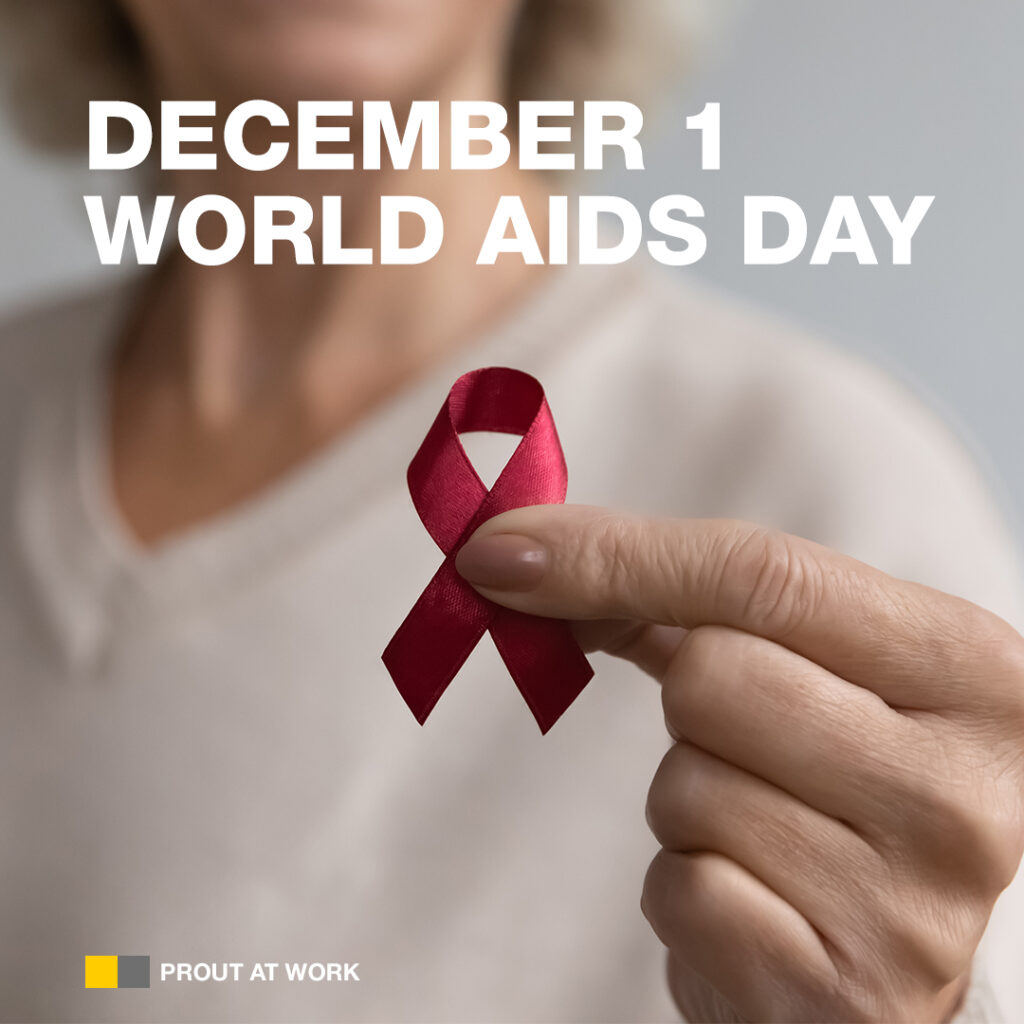
December 1 marks World AIDS Day, which has aimed to eliminate the stigma surrounding HIV and AIDS, affirm the rights of affected individuals, and create visibility for people who have died as a result of HIV and AIDS, since 1988.
About 38 million people worldwide are HIV positive, but almost all of them have no access to essential medication. The numbers of people affected vary from country to country. In South Africa, the most affected group includes young women, as well as disadvantaged or persecuted groups in many other countries, such as gay men, intravenous drug users, sex workers, and people in prison. However, all over the world, people experience discrimination in their daily lives.
Undetectable = Untransmittable
Nowadays, however, a HIV diagnosis is no longer a death sentence for those affected, because with the right treatment, HIV-positive people can live a life like anyone else. In addition, by taking medication, the reproduction of the HIV virus can be suppressed to such an extent that those affected can no longer transmit the virus during sex.
This year, the World AIDS Day takes place under the motto “Equalize” and should overall create a common togetherness, completely free of prejudice and exclusion and thus achieve prevention of spreading HIV.
Employers can also take a stand against discrimination against people living with HIV and AIDS and overcome existing inequalities in the workplace. For this purpose, the declaration #positivarbeiten was created in 2019, which has already been signed by more than 155 companies, associations, cities, ministries and businesses.
Moving critical masses
Let’s take action together to advance LGBT*IQ issues.
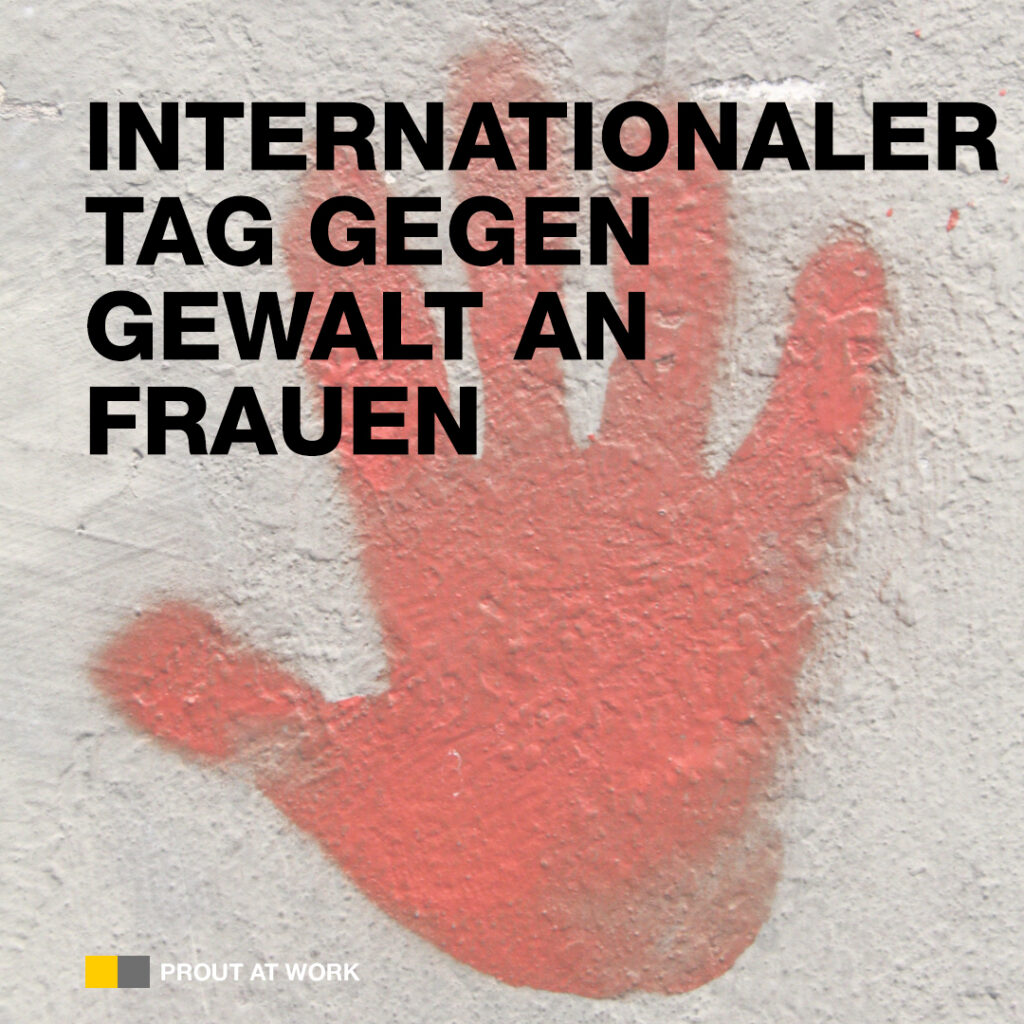
November 25 marks International Day Against Violence Against Women.
It needs to be mentioned, that all people that are read as women can be affected by patriarchal violence.
Domestic and sexual violence against women and girls is still one oft he most common violations of human rights to this day. In the last few years, the numbers have relentlessly risen.
“In Germany, every woman experiences sexual or physical violence at least once in her life; approximately every fourth woman experiences bodily or sexual harm.”
Every hour, 13 women, girls or people that are commonly read female experience domestic violence. The majority of these cases is never brought to court. Not every experience of discrimination is the same. Comparisons should not be made. Nevertheless, it should be noted that certain marginalised people experience a double burden (intersectionality), for example, people with disabilities, or the oppression of lesbian women with lived experience at the intersection of sexism and homophobia.
Germanwide consultation and help for the ones affected:
- Hilfetelefon (17 languages): 08 000 116 016, hilfetelefon.de
- Polizei: 110
- Heimwegtelefon: 030 12074182
- Opfer-Telefon: 116 006, www.weisser-ring.de
Learn more helpful information
and contact points around the topic ‘Domestic Violence’. (German only)
Trans* Awareness Week and Trans Day of Remembrance
The week of November 14-20, 2022 is trans* Awareness Week. The main goal is to create visibility for the trans* community and to draw attention to problems that trans* people have to face every day. The week ends on November 20th with the trans* Day of Remembrance which is an international day of remembrance for trans* people who died in the last year due to trans* violence. On this occasion we call for solidarity and active engagement for the rights of trans* people and demand this also from the side of politics.
To give visibility to the history of the trans* community, in this post we introduce you to five historical trans* pioneers.
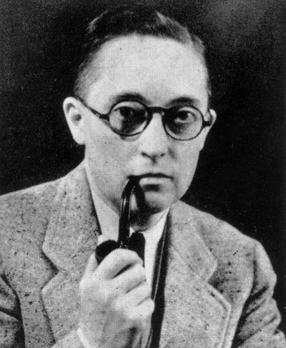
Alan L. Hart (*1880 †1962)
Alan L. Hart was a trans* man who was not only the first person in the U.S. to receive a total hysterectomy, but Alan was also a writer, researcher, and physician who saved the lives of several thousand tuberculosis patients through modern x-ray diagnoses.
Dora (Dorchen) Richter (*1891 †unknown)
Dora “Dorchen” Richter is a historically important trans* woman. She was the first known person in Germany to undergo complete gender reassignment between 1922 and 1931. Dorchen worked as a domestic servant alongside several other trans* people for Magnus Hirschfeld, the director of the Berlin Institute for Sexual Sciences, until it was attacked and destroyed by a Nazi mob in 1933. It is unclear, however, whether Dora was murdered in this attack or died at the hands of Nazis over the next few years, as there were no further records of her from that day on.
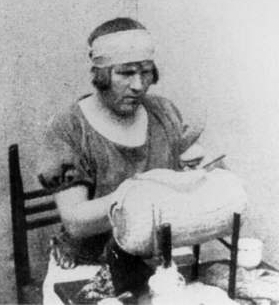
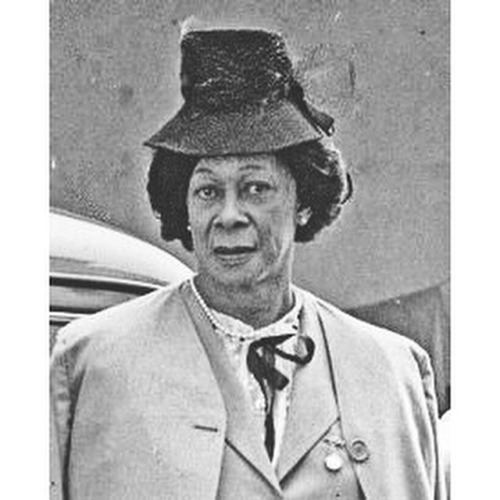
Lucy Hicks Anderson (*1886 †1954)
Lucy Hicks Anderson was a true trans* pioneer of her time. Even as a young child, she told her parents that she preferred to be a girl and be called Lucy. Lucy married two men in her life and fought for legal effectiveness of her marriage, as she was assigned to the male gender at birth. This made her a very early campaigner for marriage for all as well as for the rights of trans* people.
Willmer “Little Axe” Broadnax (*1916 †1992)
Willmer Broadnax, one of the first recorded POC trans* men in the U.S., is also an exciting trans* personality, although hardly anyone knew him until his death. It was only after he was stabbed to death by his partner in an argument that an autopsy revealed he was a trans* man. Willmer was not an unknown person in his lifetime; he was a nationally famous and popular gospel singer, known by his nickname “Little Axe.”
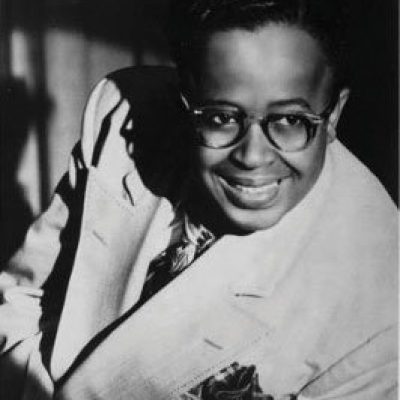
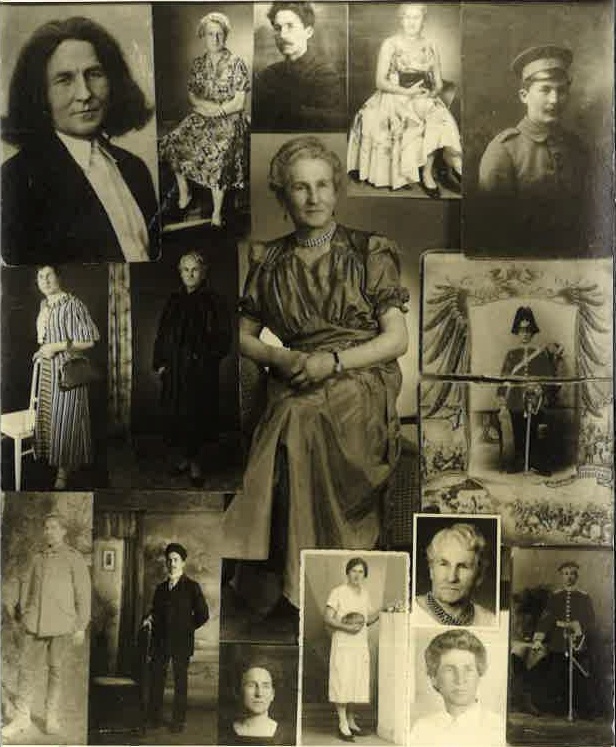
Toni Simon (*1887 †1979)
Today, we would call Toni Simon a German pioneer of non-binary life. On the occasion of Toni’s seventieth birthday in 1956, a collage of Toni’s various phases of life was created, which was then also sent as a postcard. In it Toni can be seen in different gender roles at a time, especially at the beginning Toni was mostly in male military uniforms and suits. As Toni grew older, Toni chose increasingly fancy dresses. Doing so, Toni wanted to break the rules of binarity and proved that gender binaries can be broken.
More tips for trans* people
Here are further ideas for trans* people in a workplace:
- Seek allies and role models within the company.
- If possible, work with the company to create a communication and action plan.
- Very important: You set the pace!
- Network with the LGBTIQ network, if one exists. We have compiled a list of LGBTIQ networks in companies and organizations.
Tips for Companies and Allies
- A Transition Guide clearly specifies who is responsible. Note: the trans* person determines the pace and whether an action should be implemented. Every transition is individual
- Enable name and pronoun changes before the official decision is made.
- Training sensitize HR and management
- Establish and strengthen an internal LGBTIQ network with dedicated trans contact persons
- Inform about the topic trans*
- Use gender inclusive language, ask for a person’s pronouns so they use the one chosen by the trans* person and not their deadname. Deadname is the old, discarded name of a trans* person.
- Only ask questions that you would answer yourself
- Consciously stand up for the rights and against the discrimination of trans* persons
Advice centers
Bundesverband trans*
“The Bundesverband Trans* (BVT) sees itself as a federation of individuals, groups, associations, federations and initiatives at regional, state and national level whose common endeavor is the commitment to gender diversity and self-determination and the commitment to human rights in terms of respect, recognition, equality, social participation and health of trans persons or persons not located in the binary gender system.”
Deutsche Gesellschaft für Transidentität und Intersexualität e.V.
“The dgti has set itself the goal of promoting the acceptance of transidents within society and counteracting their stigmatization. It should advise and support those affected and interested, if this is desired. An essential aspect of the work should be the (re-)integration of affected persons into the work process, in order to counteract the danger of social decline, which is still associated with social change today. It advocates more openness to one’s own identity and takes into account the diversity of human existence.”
Transmann e.V.
“Nationwide, volunteer-based, non-profit association for all woman-to-male (FzM/FtM) trans* and inter* people.”
TransInterQueer e.V.
“TrIQ is a social center and a politically, culturally and in the research field active association, which stands up for trans, intersex and queer living people in Berlin and beyond.”
Trans*Inter*Beratungsstelle
“The project of the Münchner Aids-Hilfe e.V. is equally there for trans* and inter* people as well as their relatives and friends.”
TGEU
“TGEU is a membership-based organization that was founded in 2005. Since then, TGEU has steadily grown and established itself as a legitimate voice for the trans* community in Europe and Central Asia, with 157 member organizations in 47 different countries.”
BIG IMPACT INITIATIVE AWARD:
more* von OTTO
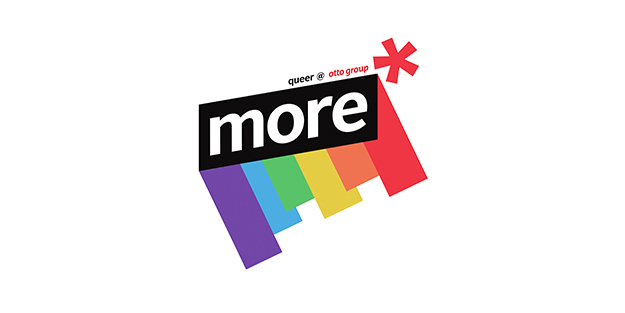
Immer noch traut sich nur ein Bruchteil der trans* Personen am Arbeitsplatz ein Coming Out zu, da sie Angst vor Diskriminierung der Mitarbeitenden haben und befürchten müssen, negative Konsequenzen zu erleiden. MORE* hat sich diese Thematik zu Herzen genommen und außerordentliches Engagement gezeigt: Für ein respektvolles, diskriminierungsfreies Miteinander und vor allem für die Normalisierung des Umgangs mit trans*Personen sowie die Sensibilisierung für das Thema trans* und Geschlecht im Allgemeinen.
Nicht zuletzt durch die Entwicklung des Transidentity-Guides konnte das Netzwerk erzielen, dass die Thematik einiges an medialer Aufmerksamkeit auf sich zog. Es folgten auch weitere Unternehmen, die einen eigenen Transidentity-Guide erstellen (werden). Dies war auch möglich, da MORE* den Guide für alle zugänglich, kostenfrei zum Download bereitgestellt hat.
RISING STAR AWARD:
pride@ergo
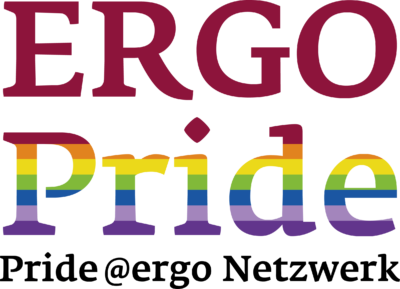
Vor allem die Vernetzung vom Netzwerk mit unterschiedlichen Unternehmensebenen, wie Diversity- und Kommunikations-Abteilung sowie die Unterstützung aus dem Vorstand und von der Schirmherrin, haben gezeigt, dass auch ein junges Netzwerk in kurzer Zeit viel erreichen kann und das egal ob intern oder extern.
Die breit gefächerten Aktionen und Verankerung in der Firmenstruktur – vom deutschlandweiten Hissen der LGBT*IQ-Flagge an den Unternehmensstandorten, der Teilnahme mit Truck am CSD Köln bis hin zum firmeninternen Thematisieren von LGBT*IQ-Belangen beim Azubi-Start oder in der Gesprächsarena – waren ausschlaggebend bei der Entscheidung für Pride@ergo.
GLOBAL LEADER NETWORK AWARD:
fujitsu pride
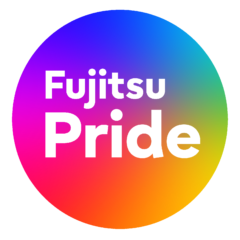
Insbesondere in LGBT*IQ-feindlichen Ländern setzt sich das Netzwerk dafür ein, dass queere Personen auch dort Zugang zum Netzwerk haben – entweder durch die Schaffung eines lokalen Netzwerkzweigs oder auch durch die Möglichkeit von einem anderen Land aus dem Netzwerk beizutreten. Zudem wurden – als erstes japanisches Unternehmen – 2018 die UN-Standards of Conduct zur Bekämpfung der Diskriminierung von Lesben, Schwulen, Bi-, Trans- und intersexuellen Menschen unterzeichnet. Ausschlaggebend bei der Entscheidung für Fujitsu Pride war zudem der Workplace Index sowie das Pride Pledge, mit dem sich Mitarbeiter_innen dazu verpflichten, als Allies oder als LGBT*IQ-Person andere innerhalb und außerhalb des Unternehmens zu unterstützen.
sustainability AWARD:
co-pride von continental

Die Aktionen von Proud Heroes bestechen durch ihre konsequente Ausrichtung an den Bedürfnissen der queeren Mitarbeiter_innen – auf Basis von jährlichen Befragungen. Das Netzwerk versteht es zudem, die umgesetzten Maßnahmen in allen Ebenen und Prozessen des Unternehmens zu verankern und so verbindliche Richtlinien zu schaffen, beispielsweise zu Transitionen, Diskriminierung oder Entsendungen ins Ausland. Damit ebnet es den Weg für langfristigen und nachhaltigen Wandel hin zu LGBT*IQ-Chancengleichheit am Arbeitsplatz.
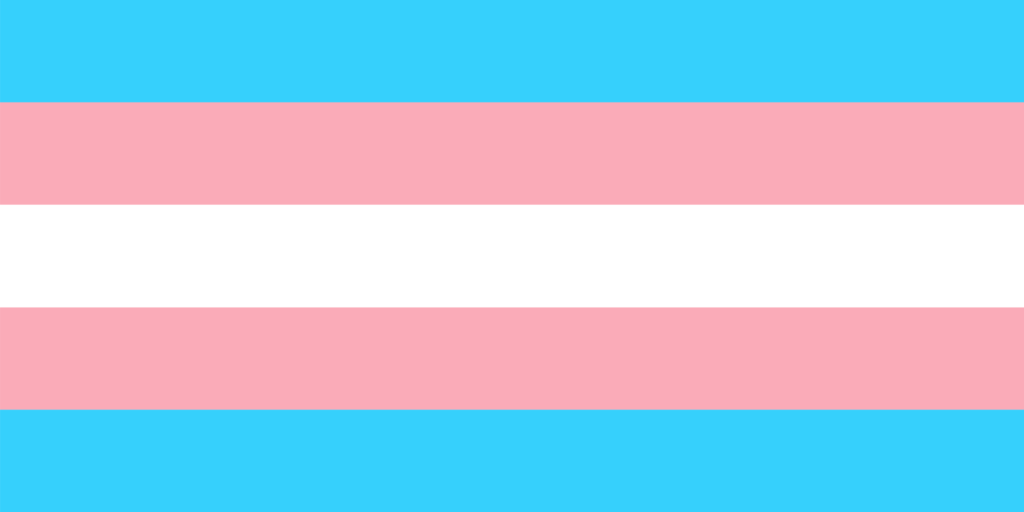
Self-determination instead of degradation!
The “Selbstbestimmungsgesetz” (law of self-determination) is supposed to put the 40 year old “Transsexuellengesetz” (law under which gender transitions are regulated) out of order.
This step is supposed to ensure that trans* people can change their gender without costly procedures, therapists and lots of paperwork.
Trans* inter* and non-binary people will need only to go to their local registry office and fill out a paper under oath to chance their gender.
there will also be a clause that protects trans* inter* and non-binary people from involuntarily being outed, or deadnamed.
It isnt clear yet if this law will be maintained in that way, or if more changes will be made in the end. At the end of the year it will once again be looked over by our politicans, before the law will have to go trough the usual parlamentary trials.
Of course we will keep you updated!
TIPS FOR TRANS* PEOPLE
Here at a glance is an excerpt on further assistance:
- Seek allies and role models within the company.
- If possible, work with the company to create a communication and action plan.
- Very important: You set the pace!
- Network with the LGBTIQ network, if one exists. We have compiled a list of LGBTIQ networks in companies and organizations.
TIPS FOR COMPANIES AND ALLIES
- A Transition Guide clearly specifies who is responsible. Note: the trans* person determines the pace and whether an action should be implemented. Every transition is individual
- Enable name and pronoun changes before the official decision is made.
- Training sensitize HR and management
- Establish and strengthen an internal LGBTIQ network with dedicated trans contact persons
- Inform about the topic trans*
- Use gender inclusive language, ask for a person’s pronouns so they use the one chosen by the trans* person and not their deadname. Deadname is the old, discarded name of a trans* person.
- Only ask questions that you would answer yourself
- Consciously stand up for the rights and against the discrimination of trans* persons
ADVICE CENTERS
BUNDESVERBAND TRANS*
“The Bundesverband Trans* (BVT) sees itself as a federation of individuals, groups, associations, federations and initiatives at regional, state and national level whose common endeavor is the commitment to gender diversity and self-determination and the commitment to human rights in terms of respect, recognition, equality, social participation and health of trans persons or persons not located in the binary gender system.”
DEUTSCHE GESELLSCHAFT FÜR TRANSIDENTITÄT UND INTERSEXUALITÄT E.V.
“The dgti has set itself the goal of promoting the acceptance of transidents within society and counteracting their stigmatization. It should advise and support those affected and interested, if this is desired. An essential aspect of the work should be the (re-)integration of affected persons into the work process, in order to counteract the danger of social decline, which is still associated with social change today. It advocates more openness to one’s own identity and takes into account the diversity of human existence.”
TRANSMANN E.V.
“Nationwide, volunteer-based, non-profit association for all woman-to-male (FzM/FtM) trans* and inter* people.”
TRANSINTERQUEER E.V.
“TrIQ is a social center and a politically, culturally and in the research field active association, which stands up for trans, intersex and queer living people in Berlin and beyond.”
TRANS*INTER*BERATUNGSSTELLE
“The project of the Münchner Aids-Hilfe e.V. is equally there for trans* and inter* people as well as their relatives and friends.”
TGEU
“TGEU is a membership-based organization that was founded in 2005. Since then, TGEU has steadily grown and established itself as a legitimate voice for the trans* community in Europe and Central Asia, with 157 member organizations in 47 different countries.”
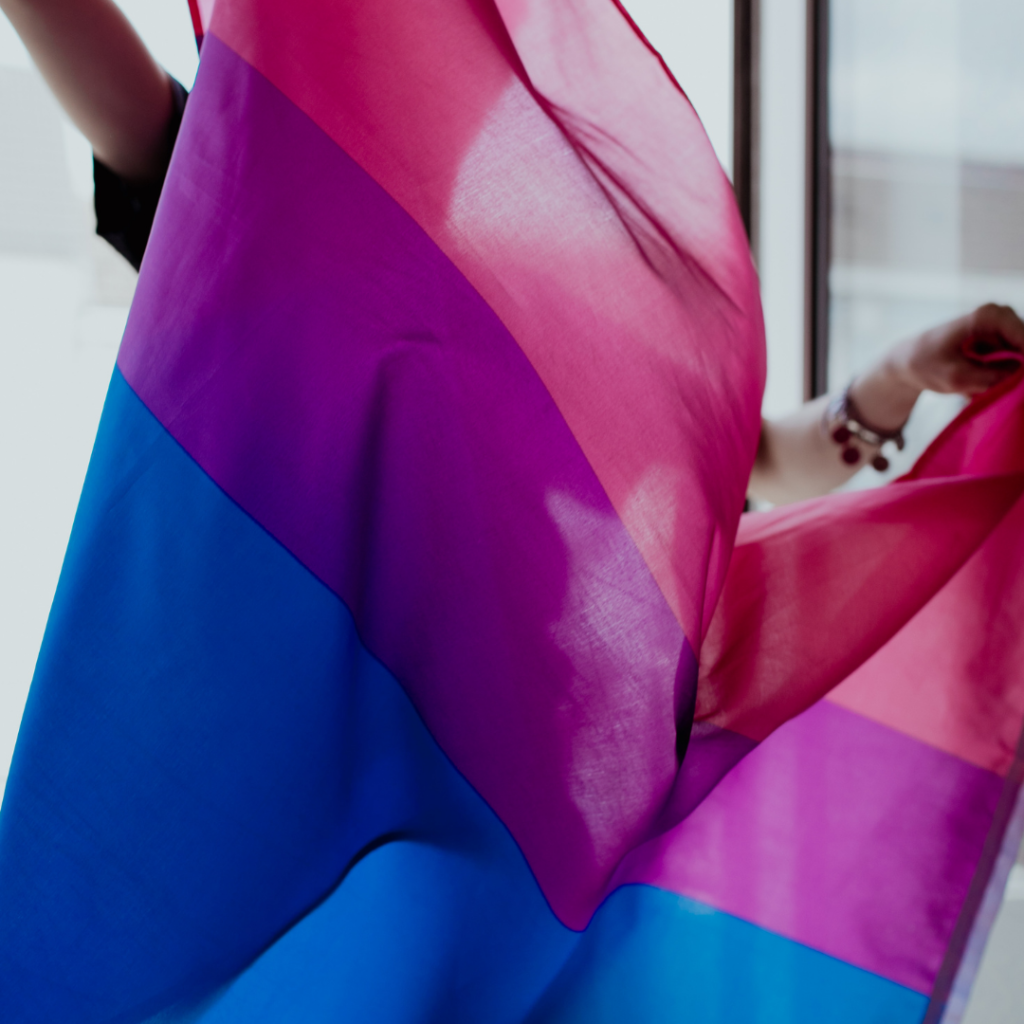
Campaign: #BiVisible
For this year’s Bi+ Visibility Day
The goal of the campaign is to empower bisexual people, to create visibility through a large number of participants as well as to highlight the diversity of bisexual people.
We understand bisexual as all people who do not have romantic and/or sexual relationships exclusively with people of a certain gender.
The campaign was initiated jointly by the PROUT AT WORK-Foundation and Accenture.
#BiVisible – Bi+ Visibility Day 2022
Bi+ Visibility Day has been established in 1999 and falls on the 23. Of September each year. Its’ goal is to raise awareness of, and celebrate the complex life situations of bisexual persons. For this day, we interviewed bisexuals about how they view their own bisexuality, and what their wishes are, related to it. We collected their answers here for you:
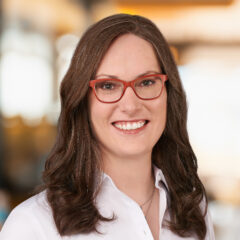
Sarah Schiller (she / her), Head of Trial Molds Replacement – R&D Tires, Continental
How do you experience the topic of bisexuality at work?
In the engeneering world, I perceive mostly heterosexual men, who have had homoerotic experiences, but distance themselves from bi+ or homo+. It seems that bisexuality doesnt quite fit into the world view of their colleagues. In that context, Bi+ is often associated with promiscuity or lack of decisiveness.
How do you, as a bisexual person, want to be viewed?
I dont agree with prejudiced labels. For example, I am completely monogamous by my own decision, and I am only in a relationship with one person at a time, „despite“ being bi+. I dont want to be judged as poly/mono based on my bisexuality; everyone should find happiness in their own ways; the most important thing for me is to be seen as myself.
How can this topic be taken up in a work environment?
Awareness is, same as in all LGBTIQ themes, the key to getting rid of prejudice, and prevent unreflected hurt in the future. Thats why Visibility campaigns like Bi+Visibility Day are so important!
How do you experience the topic of bisexuality at work?
I am a bisexual single mother. Most oft he time, I´m not perceived as a bisexual or part oft he LGBTIQ* Community, since I have a child from a relationship with a man. When I tell my colleagues that I am active in the LGBT* Community in my company, the first reaction is often confusion. When I out myself as bisexual afterwards, the responses are neutral. I also experienced that a lesbian colleague on an LGBT* meeting by the company suddenly, and very obviously, lost interest in me when I told her I´m bisexual. The reality of bisexual people not being taken seriously in the LGBT* community is also sadly reoccurring reality. I have heard people refer to me with „When you still were lesbian.“ Or „when you played for the other team“ and that made me as a bisexual person, feel misunderstood. Even with neutral reactions, I feel insecure about what my colleagues think and if theyre prejudiced. It´s important to me to be able to come out to people, because my bisexuality is part of my history and what makes me me.
How do you, as a bisexual person, want to be viewed?
I fall in love with a person. Despite their gender. My Bisexuality is not a phase, I am not confused, I know very well what I wish for in a relationship. Despite that, the way to get there wasn´t easy, I myself thought I had to „pick a side“ and came out as lesbian. At some point I had to out myself again as bisexual, when I understood that I could also fall in love with men, and that it is okay. My non-binary gender Identity was overlooked for a long time. Thats what shaped my history and experiences.
How can this topic be taken up in a work environment?
The topic of bisexuality is given room, if there is conversation about the LGBT* Community on a company level. (Presentations, Diversity & inclusion)
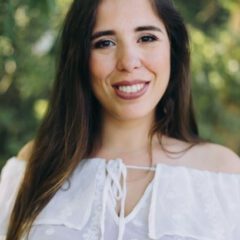
Rafaella Fabris (she / her), Quality Manager, Infineon Technologies
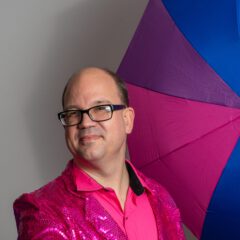
Frank thies (he/him), teacher, diversity representative
How do you experience the topic of bisexuality at work?
I am not only a teacher who is concerned with diversity at my school, but also diversity representative who gives advice and coordinates projects. I am openly bisexual. Colleagues have talked to me regarding my newspaper interviews, and congratulated me on them. They approve of me.Nowadays, I experience more and more students coming out, especially as bisexual, non-binary or trans*. Gay and bisexual boys are more apprehensive.On the 23. Of September, we will raise the bisexual flag in my school.
How do you want to be viewed as a bisexual person?
Fundamentally, my bisexuality is only one of many properties of my person. I am also creative, reliable, empathic, often impatient, hilarious, I love board- and cardgames, fantasy, writing and yoga.But visibility is extremely important to bisexual people, because theyre often overlooked or actively made to be invisible.I think bisexuality is a gift, and thats why I want beauty to be seen in it.
How can this topic be taken up in a work environment?
Trough diversity-working groups, trough the raising oft he Bi-Flag, trough normalizing that people can love other people with different genders. Even more than one person at the same time. Trough supporting Bi+Pride. By attendance of #TeachOut (if you habe a teaching background). The own coming out encourages others, thats why if you have a good relationship with work colleagues, and are well liked/accepted-what are you waiting for? If not for yourself, do it for others!
PANEL discussion on BI+ VISIBILITY DAY
In addition to the Bi+ hashtag campaign, there will also be a panel discussion on 23 September. We will talk to bi_sexual people about the (in)visibility of bisexuality in society and in the workplace, biases and what each individual can do to contribute to a better, more open environment for bi+ people. #WeAreFamily
The panel discussion is free of charge for all interested parties and will take place from 5 pm to 6:30 pm.
Tips for bisexual people
Coming out as bisexual today can still be fraught with difficulties and experiences of discrimination. If it helps you,
- Look for allies / role models in the company.
- Network with the LGBT*IQ network.
- Seek support in dealing with inappropriate comments or discriminatory behavior.
- Always remember: you determine the timing and nature of your coming out.
Tips For Companies
- Sensitize for unconscious bias
- Create clear requirement profiles
- Anonymize hiring process
- Establishment / strengthening of the internal LGBT*IQ network.
TIps for Allies
- Inform yourself about bisexual topics.
- Use gender inclusive language.
- Do not fetishize bisexual relationships.
- Stand up for the rights and against the discrimination of bisexual people. For example, support the nodoption campaign, which opposes stepchild adoption among rainbow families and advocates for the recognition of parenthood.
We look forward to a successful campaign!
If you have any further questions, please do not hesitate to contact us.
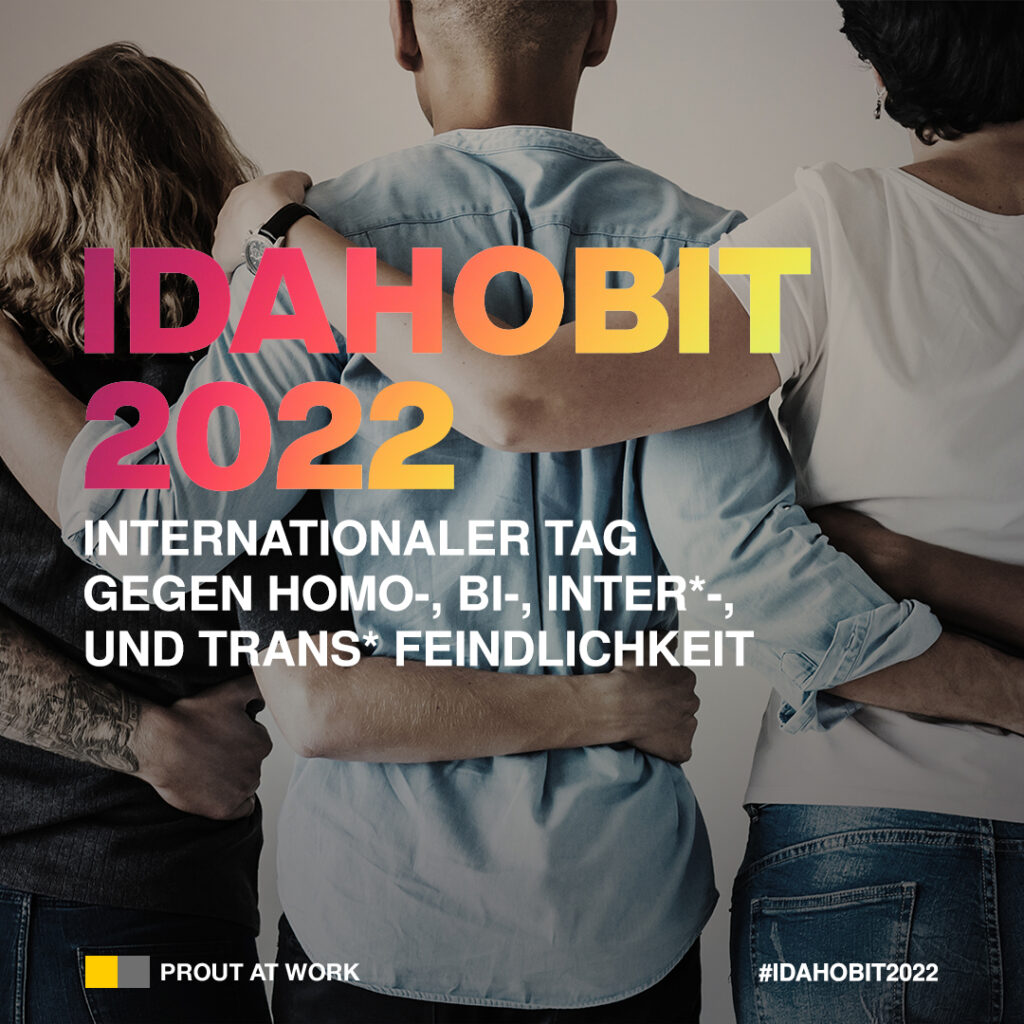
This Year’s IDAHOBIT and #MyStory
The International Day against Homophobia, Bi-, Inter- and Transphobia (IDAHOBIT) has been celebrated annually on May 17 since 2005 to highlight discrimination against the LGBT*IQ community, to raise awareness of existing inequality structures and to take a united stand for diversity and tolerance. May 17 marks the day in 1990 when the WHO removed homosexuality from the diagnostic code for diseases.
Today and every day of the year, we want to celebrate the colorful diversity of the LGBT*IQ community and have therefore created the format “MyStory”. The format gives a stage to all the individual stories that queer people experience every day, because we believe that everyone has something inspiring to tell. We start today with four moving stories.
IDAHOBIT 2022
Facts
Studies show that workplace discrimination experiences are still part of everyday life for many LGBT*IQ people. The study “Inter in the Office?!” The work situation of inter* people in Germany under a differential perspective to (endo) LGBTQ+ people.”, published in 2020 by Prof. Dr. Dominic Frohn states that 37.7% of (endo) trans and/or non-binary people surveyed, approx. 30% of inter* respondents and approx. 20& of (endo* cis) LGB+ people directly experience workplace discrimination , in the form of e.g. job rejection, transfer or dismissal.
It’s not surprising, then, that according to a Boston Consulting Group survey (2018/19), 22% of respondents see coming out at work as a potential career risk. 42% would lie to their manager about their sexual orientation and/or gender identity. More background information and studies on LGBT*IQ (in the workplace).
Support
Discrimination against LGBTIQ people is evident at other levels of society besides the workplace. Deal with these issues and make yourself aware of existing inequality structures. Only by becoming aware of these structures and grievances can you actively contribute to their dismantling. The points mentioned here are only an excerpt and not a complete list of possibilities with which you can start your commitment for LGBTIQ equal opportunities and against homophobia, bi-, inter- and transphobia.
Blood Donation
Discrimination against LGBT*IQ people is evident at other levels of society besides the workplace. Deal with these issues and make yourself aware of existing inequality structures. Only by becoming aware of these structures one can actively contribute to their dismantling. The points mentioned here are only an excerpt and not a complete list of possibilities with which you can start your commitment for LGBT*IQ equal opportunities and against homophobia, bi-, inter*- and trans*phobia.
EU LGBT*IQ Freedom Zone
In 2020, some Polish municipalities and cities declared their region as so-called “LGBT-free zones”. The establishment of entire regions where, according to the signatories, no LGBT*IQ people live is a clear attack on lesbian, gay, bisexual, trans and inter* people. As a first step, the European Parliament has declared the EU as an “LGBTIQ Freedom Zone” to send a clear message against the homophobic rhetoric and sentiment against sexual minorities in Poland. Find out more about the current events in this regard.
Selbstbestimmungsgesetz
The currently valid “Transsexuellengesetz” (TSG) is deeply discriminatory and should be replaced by the self-determination law. “The parliamentary group Bündnis 90/Die Grünen has submitted a bill “for the repeal of the transsexual law and introduction of the self-determination law” (19/19755)”.
A basic Law for all
Demand the addition of Article 3 GG, because LGBT*IQ people are still not protected by Article 3 in the German Basic Law. Many people within the LGBT*IQ community experience discrimination, exclusion and hate violence. We feel that a protection by the Basic Law is indispensable and therefore PROUT AT WORK is one of the first signatories of the appeal “A Basic Law for All”. Sign also now the petition or contact your delegates.
Legal Equality for queer Families
Stand up for the rights of rainbow families. Compared to children of heterosexual couples, the second mother must first adopt her child to provide legal protection – even if the parents are married. For example, support the nodoption campaign, which opposes stepchild adoption among rainbow families and advocates for recognition of parenthood.
MyStory
We collect stories that move, entertain, inspire. Read our first four stories today and look forward to many more!
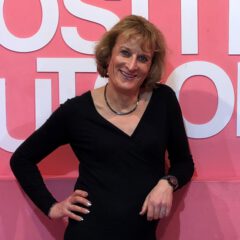
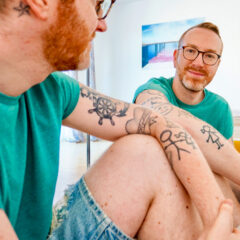
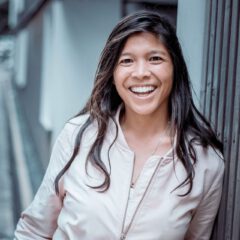
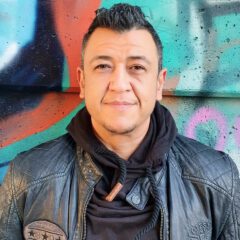
Counseling
LesMigras
LesMigraS is the anti-discrimination and anti-violence section of lesbian counseling Berlin e.V.”
Gladt e.v.
“GLADT is a self-organization of black and of color lesbians, gays, bisexuals, trans, inter and queer people in Berlin, which stands up against racism, sexism, trans* and homophobia, ableism and other forms of discrimination and offers a diverse range of counseling services.”
Antidiskriminierungsstelle des Bundes
“The counseling team with lawyers can inform you about your rights in a case of discrimination or sexual harassment, show you possibilities if and how you can enforce your rights, strive for an amicable conflict resolution and try to name experts close to your home.”
Bundesverband trans*
“The Bundesverband Trans* (BVT) sees itself as an association of individuals, groups, clubs, associations and initiatives at regional, state and national level, whose common endeavor is the commitment to gender diversity and self-determination and the commitment to human rights in terms of respect, recognition, equality, social participation and health of trans or persons not located in the binary gender system.”
Deutsche Gesellschaft für Transidentität und Intersexualität e.V.
“The dgti has set itself the goal of promoting the acceptance of transidents within society and counteracting their stigmatization. It should advise and support affected and interested persons, if this is desired. An essential aspect of the work should be the (re-)integration of affected persons into the work process, in order to counteract the danger of social decline, which is still associated with social change today. It advocates more openness toward one’s own identity and takes into account the diversity of human existence.”
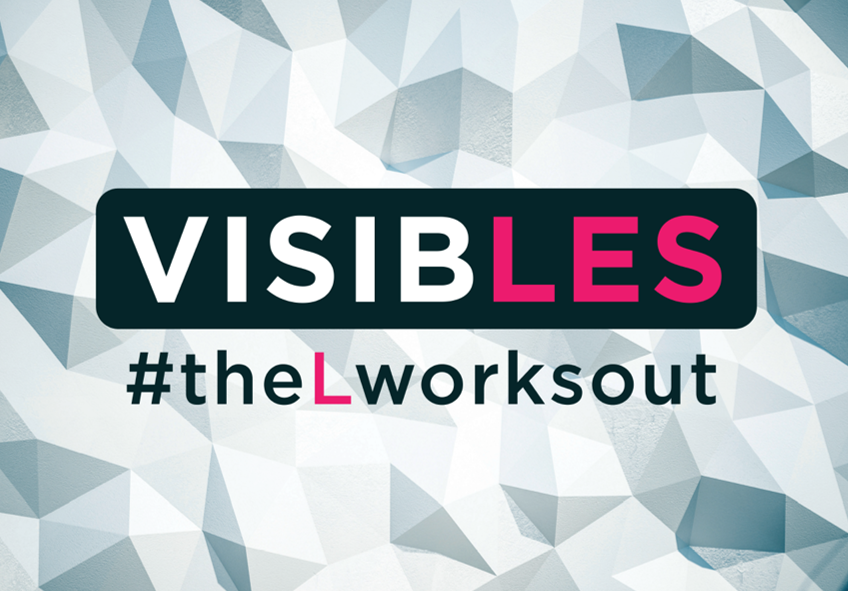
Campaign: #theLworksout for Lesbian Visibility Day
Lesbian persons and also bisexual women are often not perceived, one speaks of Lesbian Invisibility. To this day, there are few visible lesbian role models – especially in the business context. In many networks lesbian persons are in the minority. As a result, there is a lack of role models for new and younger colleagues. Through the cross-network and cross-sector campaign #theLworksout on April 26, we can empower openly lesbian people and together create visibility through a large number of participants, as well as highlight the diversity of lesbian people.
HOW CAN I PARTICIPATE IN THE campaign?
- Inform lesbian people from your own network and beyond to make them aware of the action.
- Create a portrait photo using the templates, whether printed or digitally with the tablet. You are also welcome to use the template in grayscale, for example. (Make sure to clarify in advance whether you are allowed to use the employer’s company logo together with the template. Instead, you can use the company name or use the template without the company name).
- Post your own campaign photo on 26.04. 2022 from 10:00 am with the respective hashtags and taggings on the social media channels you use
Hashtags
#theLworksout
#LesbianVisibilityDay
#LesbianVisibility
#LesbischeSichtbarkeit
#LGBTIQBusinessLadies
#ProutAtWork
#LGBTIQRoleModels
#FlaggeFürVielfalt
Taggings
PROUT AT WORK
Facebook: @PrOut@Work
Instagram: @proutatwork
LinkedIn: @PROUT AT WORK-Foundation
Twitter: @proutatwork
If applicable, own company
Position yourself and your company as a supporter of the campaign and for lesbian visibility and call on employees to participate.
The campaign was initiated jointly by the PROUT AT WORK-Foundation and LGBT*IQ business networks. The Lesbian and Gay Association (LSVD) and Wirtschaftsweiber e.V. support the campaign.
You can also find more helpful information and interviews in our article
on Lesbian Visibility Day 2021.
We look forward to a successful campaign!
If you have any further questions, please do not hesitate to contact us.
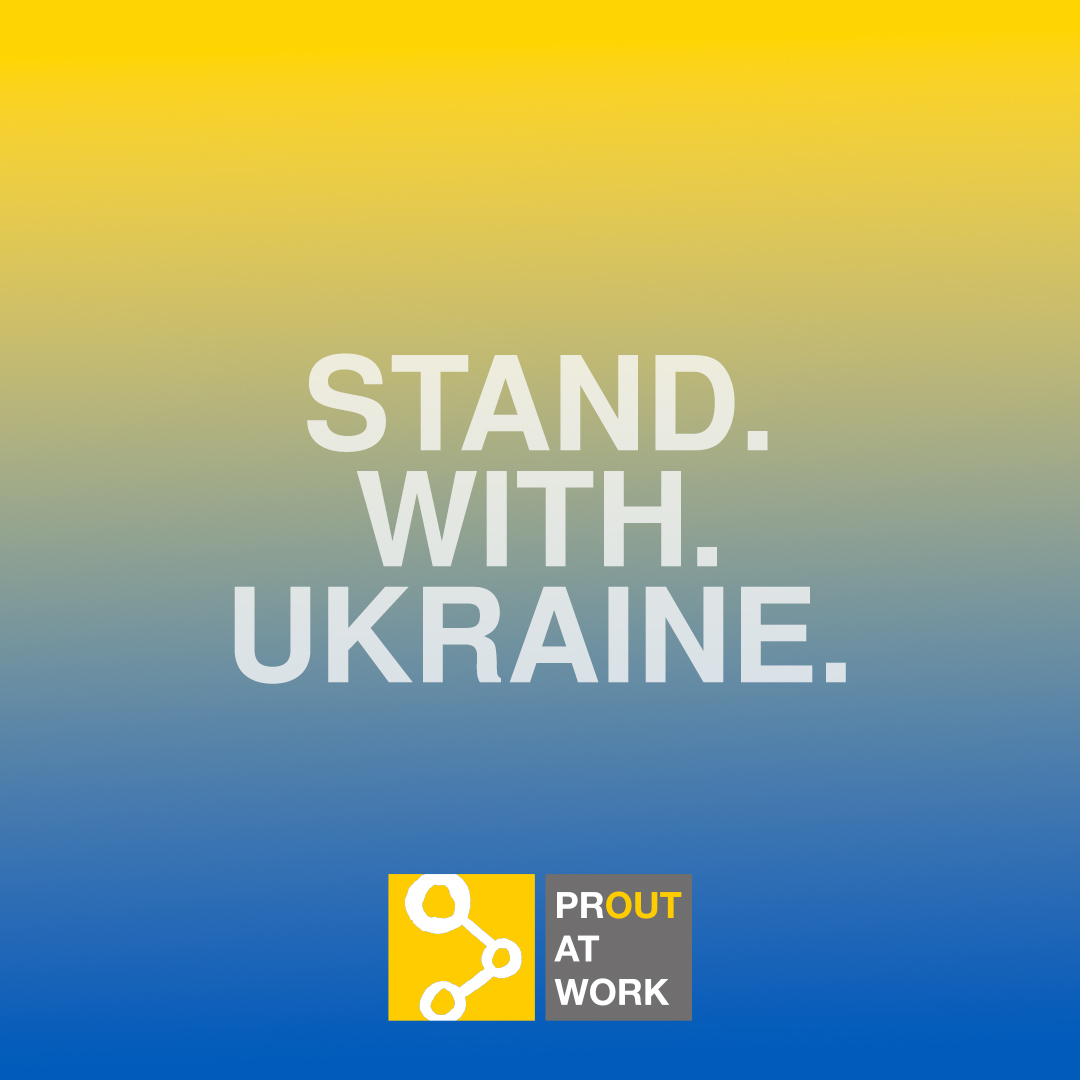
We stand in solidarity with all people in Ukraine who are affected by the Russian invasion and war. We know that the Russian regime is extremely queer-hostile and repressive. Therefore, if you would like to support, for example, the LGBT*IQ community or other associations and groups concretely and have the resources to do so, you are welcome to do so via the following pages.
Points of contact and donation options
Many people need immediate help in the current situation. That is why we have listed various donation options here. The list does not claim to be complete. Rather, it represents an excerpt that can be constantly supplemented.
Munich Kyiv Queer / Queere Nothilfe Ukraine
“The contact group Munich Kyiv Queer, formed in 2012 after the CSD in Munich, specifically advocates for the human rights of homo-, bi-, trans* and inter* people in Ukraine. The twinning between Kyiv and Munich is the basis for this.”
“Queere Nothilfe Ukraine is an association of representatives of various organizations from the LGBT*IQ community in Germany. We are in close contact with the human rights organizations on the ground, which use funds for the urgently needed care or evacuation of queer people. Every donation helps and is 100% earmarked.”
With their fundraiser they support activists who need money for transport, accommodation and food until they have found a safe place.
Quarteera e.V.
Quarteera e. V. is an association of Russian-speaking LGBT*IQ in Germany. With their donation campaign, the necessary funds for food, clothing, fees for legal aid, language courses for LGBT*IQ, will be financed.
Kharkiv Pride
KharkivPride is the largest LGBT*IQ Pride organizer in Ukraine, along with KyivPride, which created the event for the protection, equal rights and opportunities of LGBT*IQ people.
You have further input?
Feel free to contact us with specific places to go and ways to donate,
that we can include on the list.
